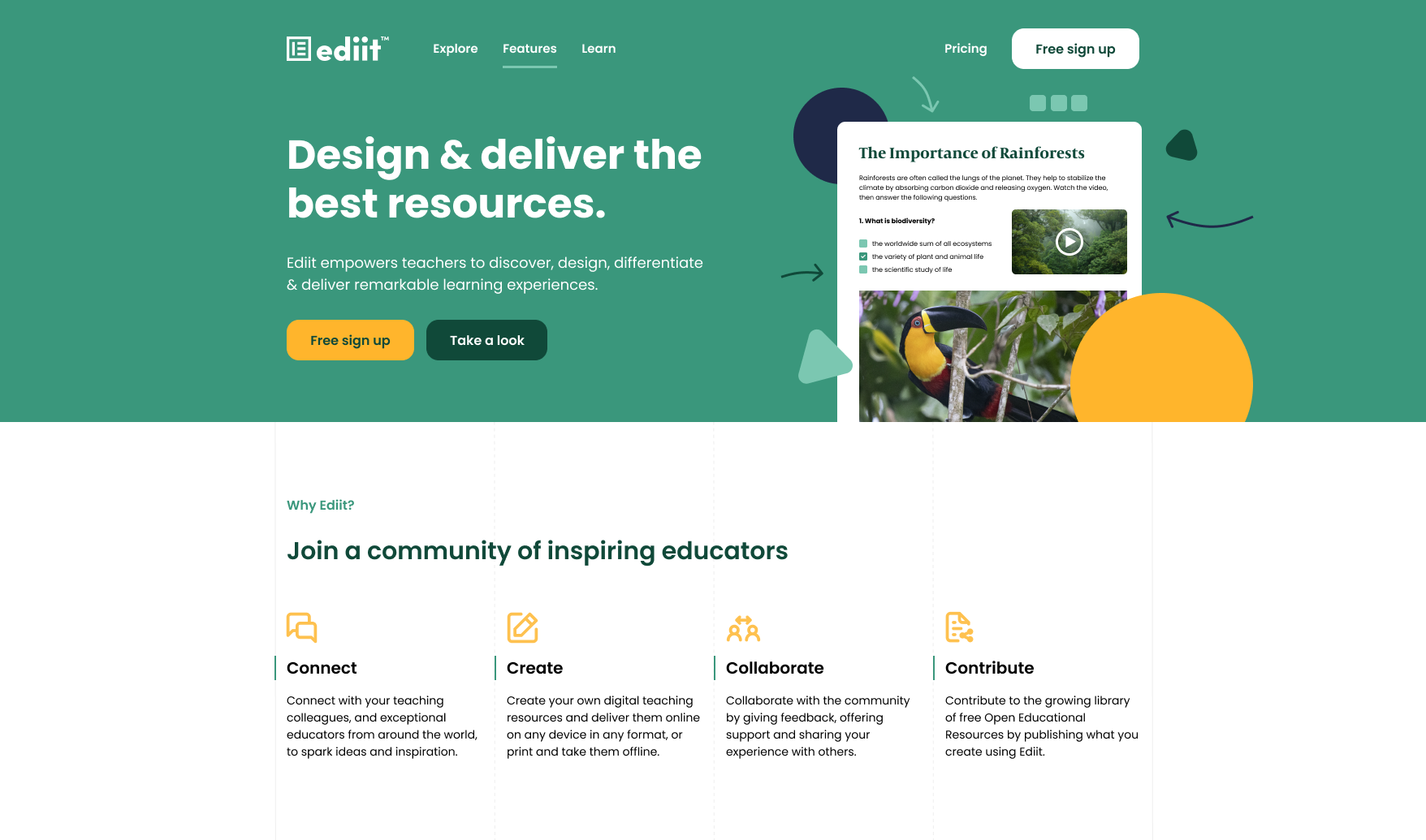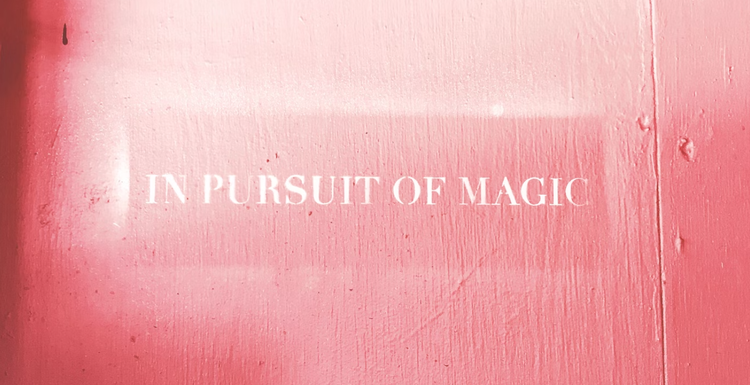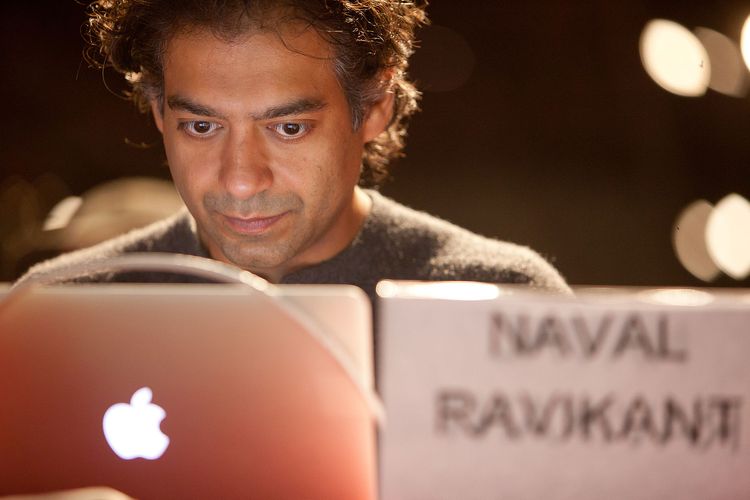Deciding On The Next Big Idea

Since stepping out of our day-to-day roles at Teach Starter, my wife Jill and I have had countless conversations that seem to revolve around one question; what's the next big idea?
We purposely decided that after bringing on a CEO to lead the Teach Starter team, we would take some time to reflect, recharge and relax after 8 years of focus.
During this time off, we often struggled. Partly, our identity was heavily tied to Teach Starter and the role we played, and partly because we love to create, challenge ourselves, and build something people need.
And so, after barely six months of reflecting, relaxing, and recharging, it was time to dive into the next venture.
Initially, our thoughts immediately settled on Edtech. What were the lessons learned from Teach Starter? What did we miss and where were the gaps in the market yet to be served?
An idea arose around Open Educational Resources (OER) to build a tool that enabled the creation of digitally native teaching resources. Essentially a 'Canva' specifically for education. This idea spawned Ediit. One of my goals this year was to learn new programming languages and frameworks, and Ediit provided me with a conduit to achieve this goal.

Another goal was to redevelop the website of K-3 Teacher Resources, a company we were fortunate to acquire in 2016. We decided a rebrand would be wise to expand the scope of the offering and signify a fresh start for the decade-old brand. Moving through this process, we landed on the name Classbot; a portmanteau of the words Classroom and Robot.

With these two goals in mind and two new brands spawned, I got to work building the websites. These projects satisfied my need to create and challenge myself. They're both still a work in progress.
First principles
Yet as Jill and I moved further along that path to launch, doubts emerged. Could we see ourselves dedicating the next decade of our lives to either brand? Maybe. But it wasn't a resounding, unequivocal, YES!
Then, more uncertainty began to creep in.
Was Classbot just too similar to Teach Starter; were we simply trying to recreate the thing we loved, then lost?
Was Ediit a solution for a problem or a solution in search of a problem?
After a few days of self-doubt, worry, and a general malaise at that whole situation, I knew I needed to work through the doubts starting from first principles.
I began with why. Why was I feeling this way? Why did I have this need to build something new?
In essence, I realised that it came down to Three Pillars that held significant meaning for me.
Three Pillars
- To have purpose
- To challenge myself
- To positively impact the lives of as many people as possible
The third pillar felt both grandiose and aspirational, with an underlying hint of egoism. But it was the truth, so I had to include it.
I figured that if I could dedicate my working time towards these pillars, my work life would give me a great sense of fulfillment and enjoyment and could become my life's work.
Hobby or Big Idea
With the 'why' question answered, I had to dig a bit deeper to understand the doubts surrounding the particular projects we had embarked on over the past 6 months.
I kept coming back to a quote from Naval Ravikant:
"What you choose to work on, and who you choose to work with, are far more important than how hard you work." ~ Naval Ravikant
I knew we could work hard. I knew that Jill and I make a great team. It was the 'what' that needed to be clearly defined and then pursued with the level of focus we had for Teach Starter.
In order to do that, we needed a set of criteria to help determine the validity of what we should work on in pursuit of the Three Pillars. These criteria would help guide our ideas to determine if they fall into the 'hobby ideas' bucket or the 'big ideas' bucket.
Hobby Ideas:
- are an interest
- are done purely for the enjoyment and satisfaction they bring
- may or may not align to the Three Pillars
- can be worked on whenever the mood feels right
- can be abandoned
Big Ideas:
- are a commitment
- align to all Three Pillars
- are worked on 24/7 driven by passion
- require 10-years to realise
Back to Naval's quote—if we all work equally as hard, with an equally skilled and dedicated team, with just the right timing and a sprinkling of luck, then what separates the million-dollar businesses from the billion-dollar businesses?
It's what they're working on.
I decided to call our criteria, Fundamental Questions.
These Fundamental Questions are aimed at distinguishing just that; is this a billion-dollar idea? Is this the right what?
Fundamental Questions
- Is the total addressable market > $1 billion?
- Is there potential for the business to reach annual recurring revenue of > $100m dollars?
- Am I willing to dedicate the next decade to working on it?
- Is it providing a solution to a clear problem that customers are willing to pay for?
- Is there a gap in the market (underserved needs/customers)?
- Do we feel personally connected to the problem we're solving?
- Does it have a positive impact on the world?
- Does the founding team have sufficient skills to build an MVP?
If Jill and I answered no to any of these questions, then the idea would fall into the Hobby bucket. It could then be pursued at leisure without pressure.
If the idea satisfied all the Fundamental Questions, then it would be on the table to be pursued with passion and commitment.
There's nothing wrong with hobby ideas. They often play to our strengths and are driven by passion too. Some even turn into big ideas.
When we started Teach Starter, we didn't have a grand vision. We didn't sit down and answer any Fundamental Questions. We were literally solving a problem Jill and her colleagues had. We had no idea what it would become.
Does Classbot satisfy the Fundamental Questions? Not really. It's a hobby.
Does Ediit satisfy the Fundamental Questions? Maybe - but it needs more thought and consideration.
Is there something else out there that will clearly satisfy these Fundamental Questions and, in turn, the Three Pillars? Absolutely!
How to find it? We're working on it.
That will be a blog post for another time.



